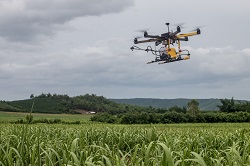How do organic foods really taste?
Organic food is popular in Europe, but it does not always meet consumers' taste and other expectations. This may result from false impressions expectations, in which case marketing strategies could be used to create greater alignment between expectations and reality. However, organic producers first need to scientifically establish the actual tastes of organic foods as compared with equivalent conventional food before making any claims. The EU-funded ECROPOLIS project aimed to deliver consumer and product-orientated research results. The initiative started in 2009 with funding for 3 years, comprising 20 partners from 6 European countries, with the goal of supporting small and medium-sized enterprises (SMEs) insufficiently resourced to do their own market research. The project's main objective was to develop a European Organic Sensory Information System (OSIS), a multilingual online database resource benefiting all stakeholders in the organic industries. OSIS contains descriptions of sensory properties of products from six categories (bakery goods, meat, apples, yogurt, native plant oils and tomato sauce) for each of six countries (France, Germany, Italy, the Netherlands, Poland and Switzerland). This information includes a comparison of consumer preferences concerning similar organic and non-organic products. Just about 55 % of organic products are perceived to have superior taste. OSIS also presents the project's other analyses in the form of marketing recommendations. This includes: country-specific information about reasons for purchase and general perception of organic food, the effects of regulatory frameworks on sensory properties, and consumer habits. The information is summarised in OSIS to three different levels of detail as appropriate to various interest groups. Thus, OSIS is a marketing tool as well as a scientific resource, which will help producers tailor and market their products in the countries studied. The project's dissemination activities included national training workshops in each of the six countries and a final discussion meeting. The ECROPOLIS project contributed to a greater understanding of the European organic food market. Several such businesses have already improved their product and marketing based on ECROPOLIS work, leading to greater profitability. Other SMEs stand to benefit similarly.







